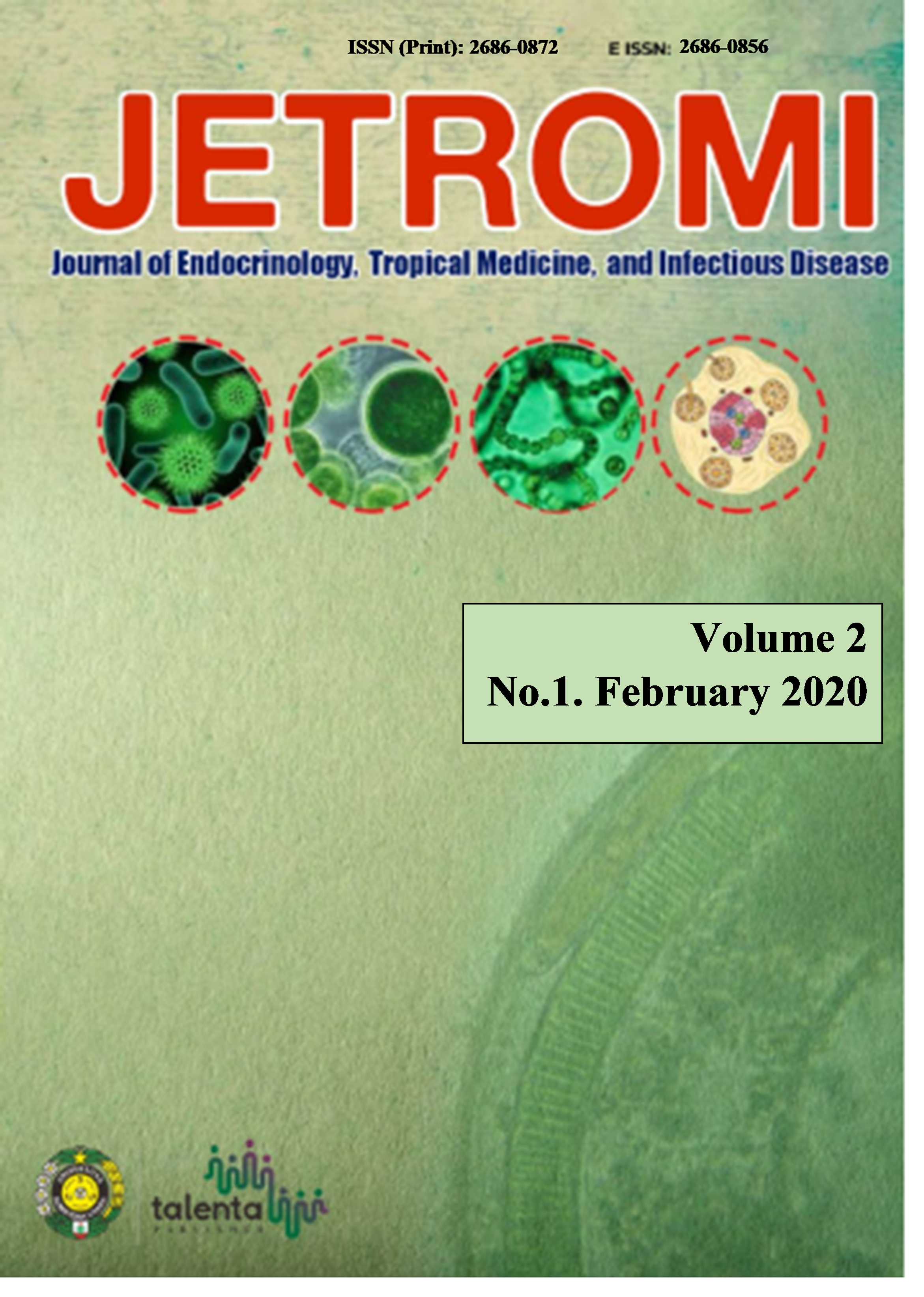HIV Infection: What Should We Know?
DOI:
https://doi.org/10.32734/jetromi.v2i1.2038Keywords:
HIV Infection, AIDS, opportunistic infections, stigma, discriminationAbstract
Acquired Immunodeficiency Syndrome (AIDS) was first known in 1981 in homosexual groups who had opportunistic infections and malignancies. In Indonesia the first AIDS case was reported in 1987 to a Dutch citizen living in the province of Bali. Cases of HIV infection in Indonesia are reported to increase every year and most occur at the age of 25-49 years. HIV transmission is not easily transmitted, even when an HIV-infected person takes antiretroviral drugs can reduce the risk of transmission by up to 96%. But one of the biggest challenges in managing HIV infection is facing stigma and discrimination. As many as 1 in 5 people living with HIV are afraid to come to the clinic because they will experience discrimination and stigma from the community if this condition occurs will cause treatment delay until PLWHA (People living with HIV/AIDS) will fall to the AIDS stage and PLWHA will be susceptible to opportunistic infections. A clinic in Namibia, when stigma and discrimination were successfully overcome, there was a 20% reduction in mortality in PLWHA
Downloads
Downloads
Published
Issue
Section
License
The Authors submitting a manuscript do so on the understanding that if accepted for publication, copyright of the article shall be assigned to Journal of Endocrinology, Tropical Medicine and Infectious Diseases (JETROMI).
Copyright encompasses exclusive rights to reproduce and deliver the article in all form and media. The reproduction of any part of this journal, its storage in databases and its transmission by any form or media, will be allowed only with a written permission from Journal of Endocrinology, Tropical Medicine and Infectious Diseases (JETROMI).








